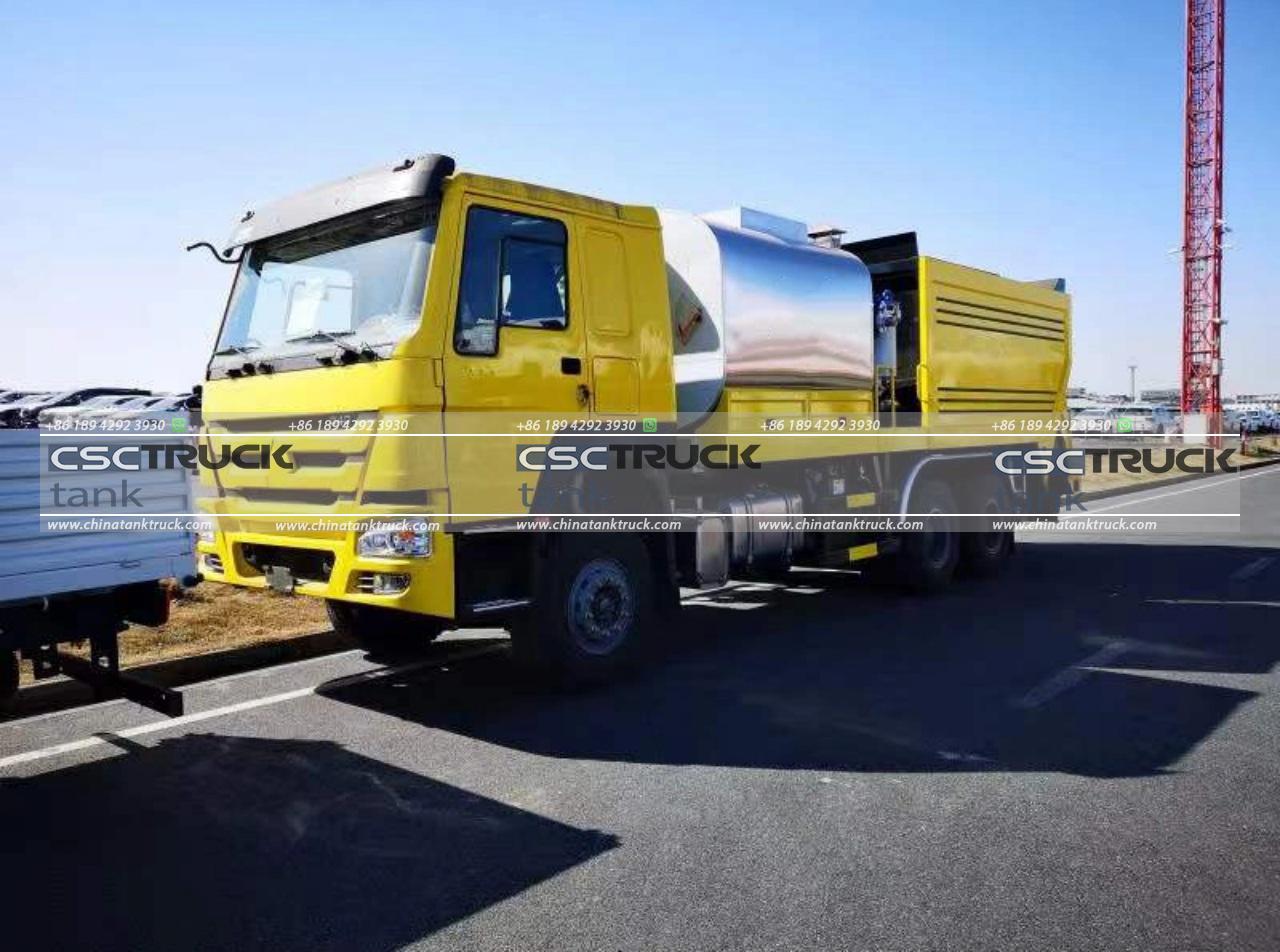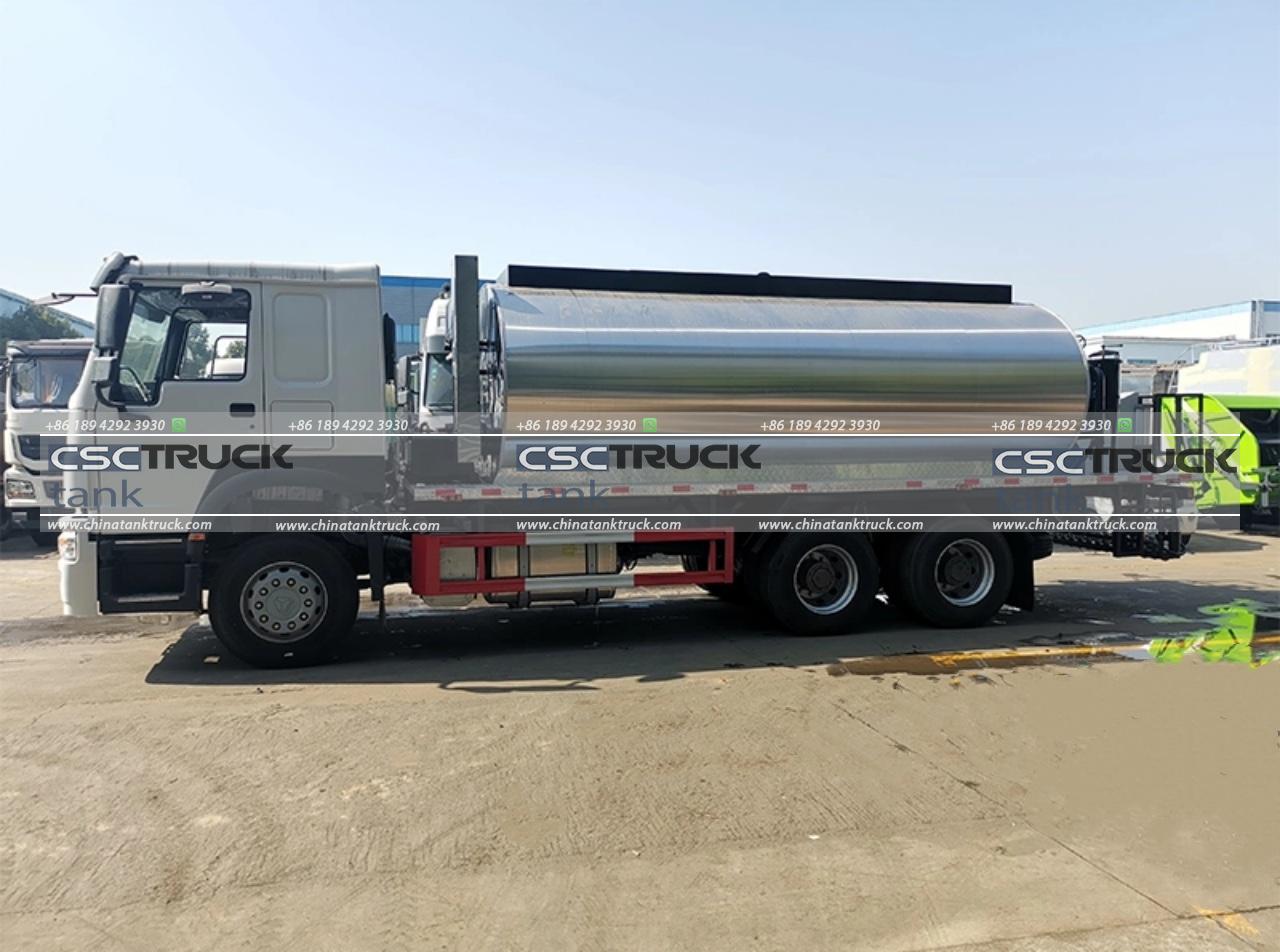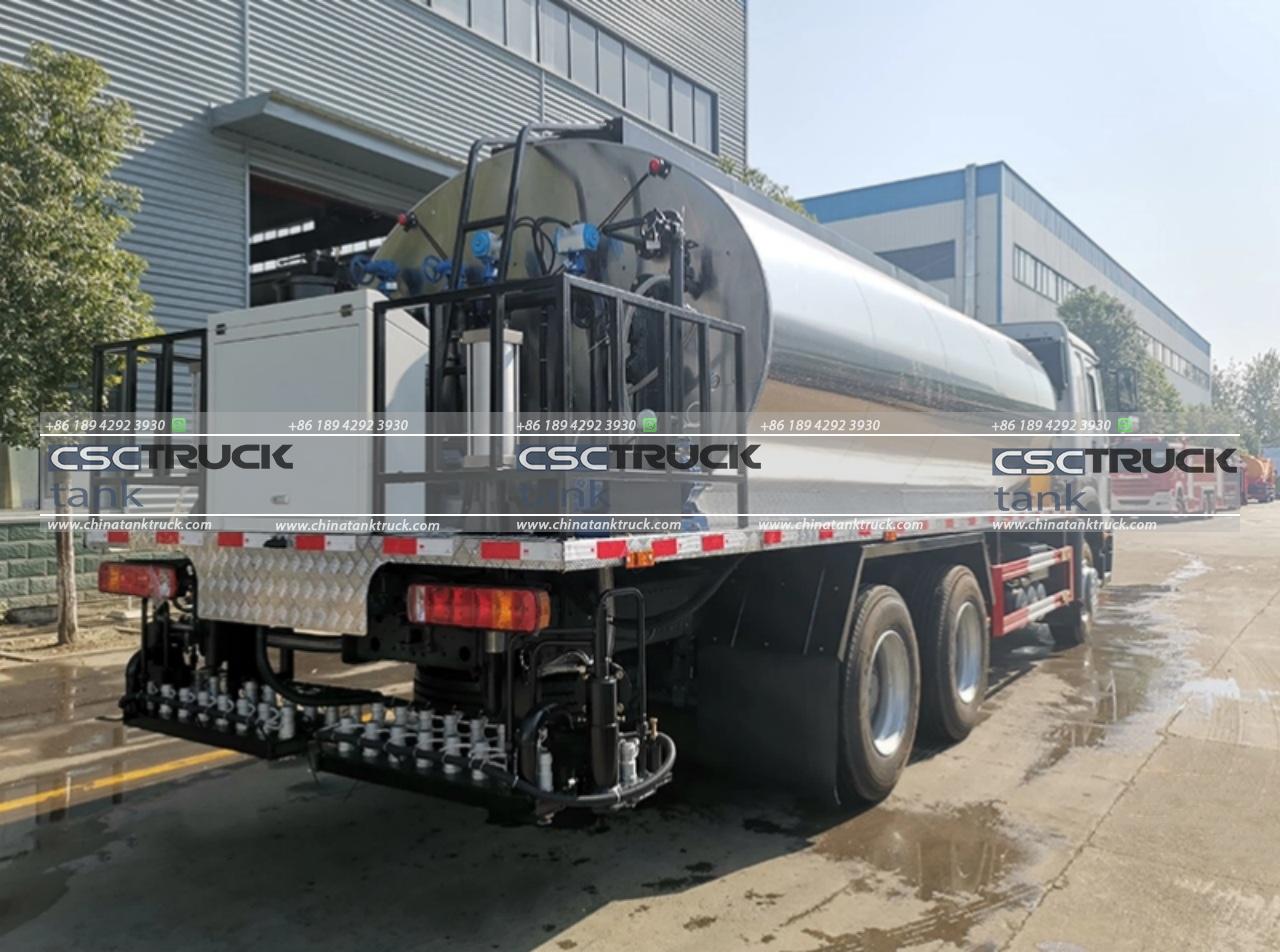In the intricate web of modern infrastructure development, the role of asphalt is indispensable. Asphalt, a mixture of aggregates and bitumen, forms the backbone of roads, highways, and many other infrastructure projects. To maintain its efficacy and usability, asphalt must be transported at high temperatures, necessitating specialized equipment. This is where asphalt tank trucks come into play, offering reliable solutions for hot asphalt transportation.
The Role of Asphalt Tank Trucks
Asphalt tank trucks are specifically designed to transport hot asphalt from production facilities to construction sites while maintaining the necessary temperature to keep the material in a workable state. These trucks are essential for the construction and maintenance of roadways, airports, parking lots, and other asphalt-paved surfaces.
Design and Features of Asphalt Tank Trucks
1. Insulated Tanks:
The most critical feature of an asphalt tank truck is its insulated tank. These tanks are typically made from high-grade steel and are lined with insulation materials that can withstand high temperatures. This insulation is vital as it prevents heat loss, ensuring that the asphalt remains at the optimal temperature during transit.
2. Heating Systems:
To maintain the required temperature, asphalt tank trucks are equipped with heating systems. These systems can be powered by diesel, propane, or electric sources and ensure that the asphalt stays hot throughout the journey. Some advanced models even have temperature control systems that allow operators to set and maintain specific temperatures.
3. Pumps and Circulation:
Efficient asphalt transportation relies on the ability to load and unload the material quickly and effectively. Asphalt tank trucks are equipped with powerful pumps that can handle the high viscosity of hot asphalt. Additionally, circulation systems within the tank prevent the asphalt from settling and ensure uniform temperature distribution.
4. Safety Features:
Given the high temperatures involved, safety is a paramount concern. Asphalt tank trucks come with several safety features, including pressure relief valves, emergency shut-off systems, and robust structural designs to withstand the stresses of hot asphalt transportation.

Benefits of Using Asphalt Tank Trucks
1. Maintained Asphalt Quality:
The primary benefit of using asphalt tank trucks is the maintenance of asphalt quality. By keeping the asphalt at the right temperature, these trucks ensure that the material remains pliable and ready for immediate use upon delivery.
2. Efficiency in Transportation:
Asphalt tank trucks are designed for efficiency. Their specialized design reduces loading and unloading times, minimizes material waste, and ensures timely delivery to construction sites. This efficiency is critical in large-scale projects where time constraints are a significant concern.
3. Cost-Effectiveness:
Although the initial investment in asphalt tank trucks can be substantial, the long-term benefits outweigh the costs. The ability to transport asphalt efficiently and maintain its quality reduces the likelihood of project delays and the need for material reprocessing, ultimately saving money.
4. Environmental Considerations:
Modern asphalt tank trucks are designed with environmental considerations in mind. Improved insulation reduces the energy needed to maintain asphalt temperature, and efficient pump systems minimize fuel consumption during loading and unloading processes. These features contribute to a lower environmental footprint for asphalt transportation.
Technological Advancements in Asphalt Tank Trucks
The asphalt transportation industry has seen significant technological advancements over the years, enhancing the reliability and efficiency of asphalt tank trucks.
1. Smart Temperature Control Systems:
Newer models of asphalt tank trucks are equipped with smart temperature control systems. These systems use sensors and automated controls to maintain precise temperatures, reducing the risk of overheating or cooling that could compromise asphalt quality.
2. GPS and Fleet Management:
Incorporating GPS technology and fleet management software into asphalt tank trucks allows for real-time tracking and route optimization. This technology ensures timely deliveries and can help avoid traffic congestion, further enhancing the efficiency of asphalt transportation.
3. Enhanced Insulation Materials:
Research and development in insulation materials have led to the use of advanced composites that provide better heat retention. These materials are lighter yet more effective, contributing to improved fuel efficiency and reduced operational costs.
4. Hybrid and Electric Models:
With the push towards sustainability, some manufacturers are developing hybrid and fully electric asphalt tank trucks. These models aim to reduce emissions and dependency on fossil fuels, aligning with global efforts to combat climate change.

Challenges in Asphalt Transportation
Despite the advancements and benefits, asphalt transportation presents several challenges.
1. Temperature Maintenance:
Keeping asphalt at the correct temperature during long-distance transportation can be challenging, especially in extreme weather conditions. Insulation and heating systems must be highly reliable to prevent material degradation.
2. Road Conditions:
Poor road conditions can affect the stability and safety of asphalt tank trucks. Uneven or damaged roads increase the risk of spills and accidents, necessitating robust design and careful route planning.
3. Regulatory Compliance:
Transporting hot asphalt involves adhering to strict regulatory standards to ensure safety and environmental protection. Compliance with these regulations can be complex and requires regular updates and inspections.
Future of Asphalt Tank Truck Solutions
The future of asphalt tank trucks looks promising with ongoing innovations aimed at improving efficiency, safety, and sustainability.
1. Autonomous Vehicles:
The advent of autonomous vehicles could revolutionize the asphalt transportation industry. Autonomous asphalt tank trucks would reduce the need for human drivers, minimizing human error and potentially lowering operational costs.
2. Advanced Materials:
Continued research into new materials could lead to even better insulation and more durable tanks, further improving the efficiency and reliability of asphalt transportation.
3. Integration with Smart Infrastructure:
As cities develop smart infrastructure, asphalt tank trucks could be integrated into these systems, allowing for better coordination with construction schedules and traffic management systems, ensuring smoother and more efficient project execution.

Conclusion
Asphalt tank trucks are a cornerstone of modern infrastructure development, providing reliable solutions for the transportation of hot asphalt. With their specialized designs and advanced technologies, they ensure that asphalt remains in optimal condition from production facilities to construction sites. Despite the challenges, the ongoing advancements in this field promise a future where asphalt transportation is more efficient, safe, and environmentally friendly. The integration of smart technologies and sustainable practices will continue to drive the evolution of asphalt tank trucks, ensuring they remain an essential tool in the development of our global infrastructure.

